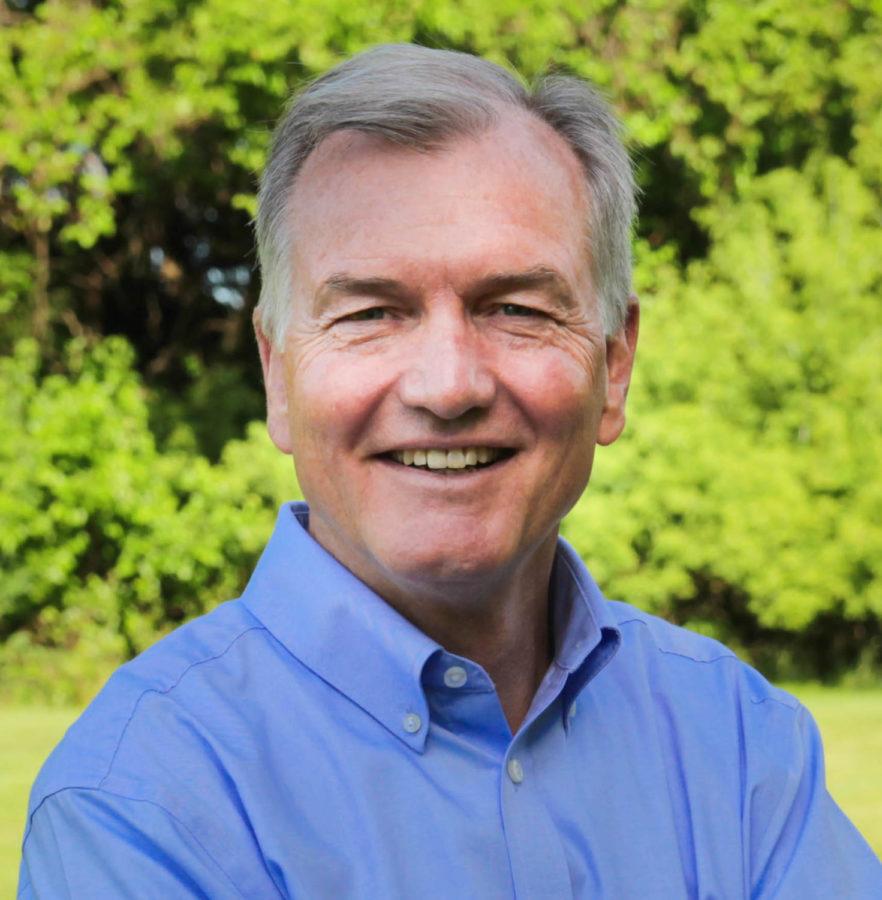Norris: DACA rescindment was short sighted, unfair
September 18, 2017
Running for governor of Iowa was never on Democrat John Norris’ bucket list.
Norris did not give candidacy a thought until the Christmas holiday. Former Gov. Tom Vilsack took Norris out to breakfast over the holiday and encouraged him to think about it.
Norris served as Vilsack’s chief of staff while Vilsack was governor and the U.S. secretary of agriculture. Norris said that he gave it some thought around the same time state legislature was in session.
“I always learned growing up that when you see injustice, when you see wrong, you step up and do your part,” Norris said. “I saw what [legislators] were doing to Iowa. That session got me worried about our state’s future.”
Norris announced his candidacy in July. At least seven others have thrown their hat into the gubernatorial race. Norris said that his breadth of experience separates him from the other candidates.
“I understand rural Iowa better than anyone in this race,” Norris said. “We have a government controlled by wealthy special interests or lobbyists. I know how to get government back to working for the people.”
Norris is running on a campaign touting education reform, environmental policy and the “empowerment” of local businesses.
He was raised on a family farm in Montgomery County. He attended The University of Iowa College of Law after graduating from Simpson College. In the ’80s, he served on the campaign staffs of then U.S. Rep. Tom Harkin and presidential candidate Jesse Jackson.
After serving as chief of staff for Vilsack, Norris was appointed by President Obama to serve as a commissioner on the Federal Energy Regulatory Commission. Norris served that role for four years before being appointed as U.S. Ambassador to the United Nations Food Agencies for Food and Agriculture.
Norris currently owns the State Public Policy Group in Des Moines – a small business that does work in policy for education, healthcare and energy.
“If you look at rural communities, two of the most essential building blocks for a quality of life and keeping people in rural communities are schools and good hospitals,” Norris said. “The medicaid privatization is strangling our rural health care system.”
Last year, the state opted to have Medicaid managed by three private companies. The move was met with angst and controversy. It left many disabled Iowans unsure of the future of their medical coverage, according to the Des Moines Register.
“Rural communities are having a hard time attracting professionals and keeping hospitals open,” Norris said. “That is what happens when [the state] underpays for services covered under Medicaid.”
On Sept. 5, U.S. Attorney General Jeff Sessions announced that the Trump administration will end the the Obama-era Deferred Action for Childhood Arrivals program (DACA).
The DACA program was enacted by the Obama administration in 2012. The program allows individuals who were brought to the U.S. illegally as children to temporarily live, study and work in the U.S. An estimated 800,000 people benefit from the program.
Those who earned protection under DACA are often dubbed “DREAMers.” Norris called the rescinding of DACA “shortsighted” and “unfair.”
“[DREAMers] are motivated to succeed. We should be doing everything we can to embrace and empower them,” Norris said. “When you look at rural communities, their main streets are flourishing because they have new Iowans who are part of those communities and they recognized the value of having them in those communities.”
Norris also said that DREAMers have been a valuable resource to the state’s workforce.
“We’re missing an opportunity,” Norris said. “They’ve played by the rules and we’re going to tell them to leave? Those aren’t the Iowa values that I grew up with.”
Norris was also critical of of the $213 million in state and local incentives that tech giant Apple will receive following the opening of the Apple data center in Waukee. The $1.375 billion data center is expected to open in 2020.
He also cited the $107 million in state tax credits received by the $1.4 billion, Egyptian-owned fertilizer plant in Lee County, stating that the state funds should have been allocated to businesses and schools across the state.
“We’ve ve got unlimited tax deductions for large companies in Iowa,” Norris said. “Why aren’t we investing in our community colleges, partnering with high schools and getting students training to fill the hundreds of vacant jobs in the state.That’s investing in our people.”
The Norris campaign team is expected to roll out a list of statewide supporters next month. Norris said that his team has sought support of local names and small businesses – opposed to high profile individuals.
Norris said that he is pleased with the progress his campaign team has made in garnering support.
“It’s time for us to win back some of the votes of people who are tired of the current politics of division,” Norris said. “I’m excited for Iowa’s future.”
Stay tuned for more coverage of the 2018 gubernatorial and congressional races.







